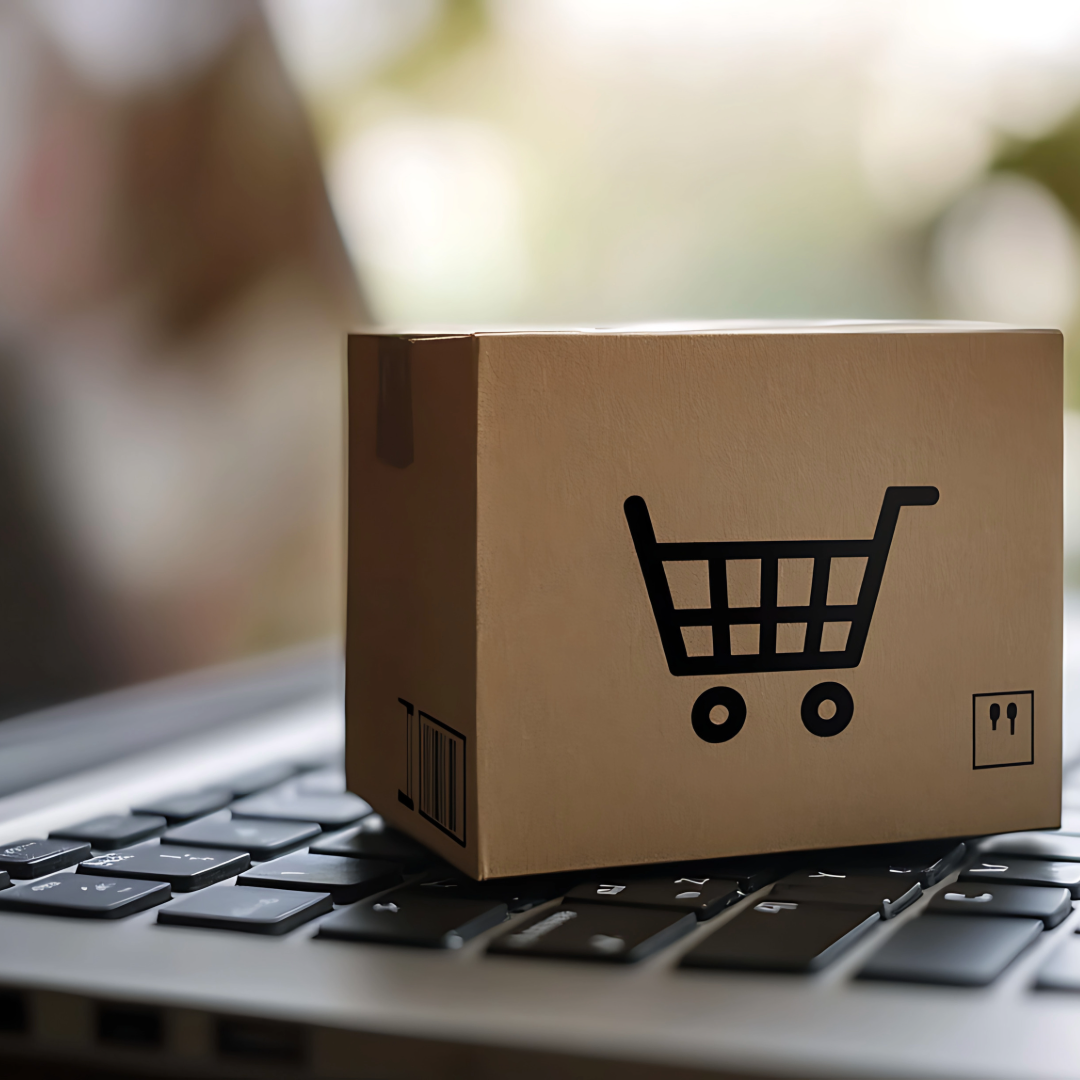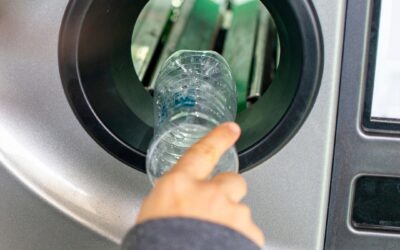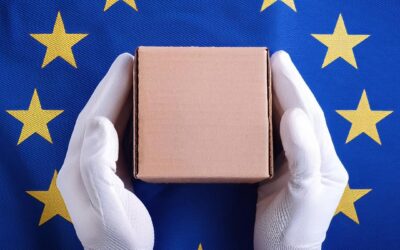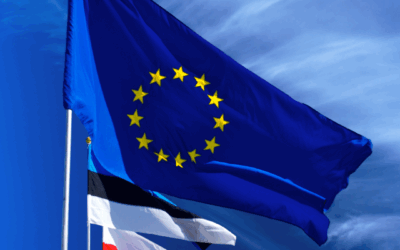Control obligations for electronic marketplaces in the EU
Digital trade has fundamentally changed the economic landscape. Electronic marketplaces have become key players that are redefining global trade flows and challenging traditional distribution channels. They have become an indispensable sales channel for many companies. Platforms such as Amazon, eBay or Kaufland offer sellers the opportunity to offer their products to a wide audience – quickly, easily and efficiently. However, this increase in importance has also given rise to complex legal requirements. In recent years, the European Union has created a comprehensive regulatory framework that poses new challenges for electronic marketplaces. Control obligations, for example, aim to ensure consumer protection, product safety and fair trading conditions. But what does this mean in concrete terms? What responsibilities do electronic marketplaces have and what impact does this have on retailers who use these platforms?


What are electronic marketplaces?
Electronic marketplaces, also known as virtual or digital marketplaces, are internet-based platforms that act as an interface between buyers and sellers. They are widespread in the B2B, B2C and C2C sectors and offer a virtual place where trading partners can communicate with each other and conduct business. They enable trade in goods and services without the platform itself acting directly as a seller. The best-known examples include global platforms such as Amazon, eBay and Etsy. A key feature of electronic marketplaces is that they often provide a variety of services for sellers. These include the technical infrastructure for product presentation, payment processing, customer communication and often also logistics solutions.
The role of these platforms has changed significantly in recent years: They are no longer just a place for transactions, but are increasingly also taking on control functions. Particularly in the area of compliance with legal regulations – such as packaging licences or product labelling – their responsibility is increasingly becoming the focus of EU legislation.
Legal framework for electronic marketplaces in the EU
Electronic marketplaces in the EU are already responsible in several countries for ensuring that the sellers on their platform comply with extended producer responsibility (EPR) obligations. These control obligations are enshrined in national legislation and relate in particular to EPR-relevant areas such as packaging, electrical and electronic equipment (WEEE) and batteries. National legislation is based on the EU Packaging Directive 94/62/EC.
Since the introduction of the European Digital Services Act (DSA) in 2022, these obligations have been further specified and expanded. Among other things, the DSA requires electronic marketplaces to take more responsibility for the transparency of sellers and the safety of the products offered. This also means that they must take proactive measures to prevent violations of applicable regulations.
Accordingly, online marketplaces and fulfilment service providers are no longer permitted to offer products from retailers who have not participated in an EPR system. How the platforms monitor participation in the system is left up to them. This can be done, for example, by means of proof of licensing.
Objectives of the EU control obligations
The control obligations for electronic marketplaces pursue clear objectives: They are intended to ensure compliance with legal regulations in online retail, protect consumers and create fair competitive conditions. In the past, retailers who were unable to present legally compliant packaging licences or product safety certificates were often able to move through the system unnoticed. This not only led to a competitive disadvantage for compliant suppliers, but also to an increased risk for consumers.
Another aim of the control obligations is to distribute responsibility more fairly. By making marketplaces more accountable, the EU is recognising that these platforms play a central role in modern trade and are often in a better position to monitor legal requirements than individual retailers.
Main control obligations in the EU
In addition to Germany, sellers in France, Spain and Austria must also provide evidence to the respective marketplace.
Germany:
- Since 2022, electronic marketplaces have had to check whether retailers have properly licensed and registered their packaging in accordance with the German Packaging Act (VerpackG).
- Platforms are obliged to take active measures to prevent violations of the VerpackG, for example by obtaining the registration number from the LUCID packaging register.
- Since July 2023, marketplaces in Germany must also check compliance with the EPR obligations under the German Electrical and Electronic Equipment Act (ElektroG). Manufacturers and retailers must be able to provide proof from the EAR Foundation (WEEE number) for products that fall under the ElektroG.
France:
- Marketplaces must ensure that sellers register their products correctly in accordance with the requirements of the EPR in the Anti-Waste Law for a Circular Economy (AGEC).
- For certain product categories such as packaging, electrical appliances, furniture or textiles, retailers must provide an EPR registration number (Numéro Unique) and proof of participation in a take-back scheme.
Spain:
- Electronic marketplaces in Spain must also check the EPR compliance of their retailers.
- Platforms must exclude retailers who do not fulfil these obligations from their listings.
Austria:
- Electronic marketplaces are obliged under the Austrian Waste Management Act (AWG) to check whether retailers are participating in the Austrian EPR system.
- As in Germany, unlicensed suppliers may be denied access to the platform.
Effects on sellers on electronic marketplaces
Sellers who do not fulfil the legal requirements or do not provide the necessary evidence risk being excluded from the platforms. This can result in a loss of sales, especially for companies that are heavily dependent on online trading. The regulations entail an increased administrative burden for many sellers. In particular, smaller companies or international retailers that are active in several markets are faced with the challenge of fulfilling the different national requirements.
However, compliant sellers can benefit from the regulations: They enjoy a competitive advantage, as illegal or unlicensed sellers are increasingly excluded from the platforms. This ensures fairer market conditions and more trust on the part of customers.
Outlook and development of control obligations
A change is underway as a result of the EU packaging regulation (PPWR). The control obligations for electronic marketplaces in the EU are likely to evolve in the coming years. With the increasing focus on sustainability, consumer protection and transparency in online retail, new regulations could follow. It is to be expected that existing laws will be further specified and tightened by 2026. For example, electronic marketplaces could be required to monitor their retailers’ compliance with environmental and safety standards to an even greater extent in future.
Currently, the monitoring obligations still vary greatly between member states. In the future, the EU could increasingly work towards creating standardised regulations that apply across borders. This would make it easier for platforms and sellers to fulfil the requirements and reduce the administrative burden. In the long term, the control obligations should help to make online trade fairer, more sustainable and safer – for both sellers and consumers.

LIZENZERO.EU makes packaging compliance in Europe very easy.
Do you ship your products to different countries in the EU? Many different legal requirements and obligations can make the whole thing quite complicated – but don’t worry, we’ll do it for you. How do we do it? With our licensing service, we take over all obligations for you by power of attorney. Sounds good? We’ll be happy to advise you.
For shipping to Germany, you can easily fulfill your packaging obligations yourself via Lizenzero.de.
Deposit systems in the EU explained
Deposit systems show that simple solutions help to keep packaging in circulation and increase recycling rates. However, there are major differences within the EU: while countries such as Germany, Sweden and Finland have been using deposits for years and achieving high return rates, other Member States are still in the early stages.
Mandatory from 2026: The EU Authorised Representative for Packaging explained
Europe is an attractive but regulatory complex market. One of the more complex requirements is the appointment of an authorised representative (AR). The AR is the central interface between the manufacturer and the European market surveillance authorities. The authorised representative plays an important role in product safety and extended producer responsibility (EPR) and is therefore becoming increasingly important to ensure access to the market.
Authorised Representatives in Europe: Which ones are there and what do you need them for?
Europe is an attractive but regulatory complex market. One of the more complex requirements is the appointment of an authorised representative (AR). The AR is the central interface between the manufacturer and the European market surveillance authorities. The authorised representative plays an important role in product safety and extended producer responsibility (EPR) and is therefore becoming increasingly important to ensure access to the market.




